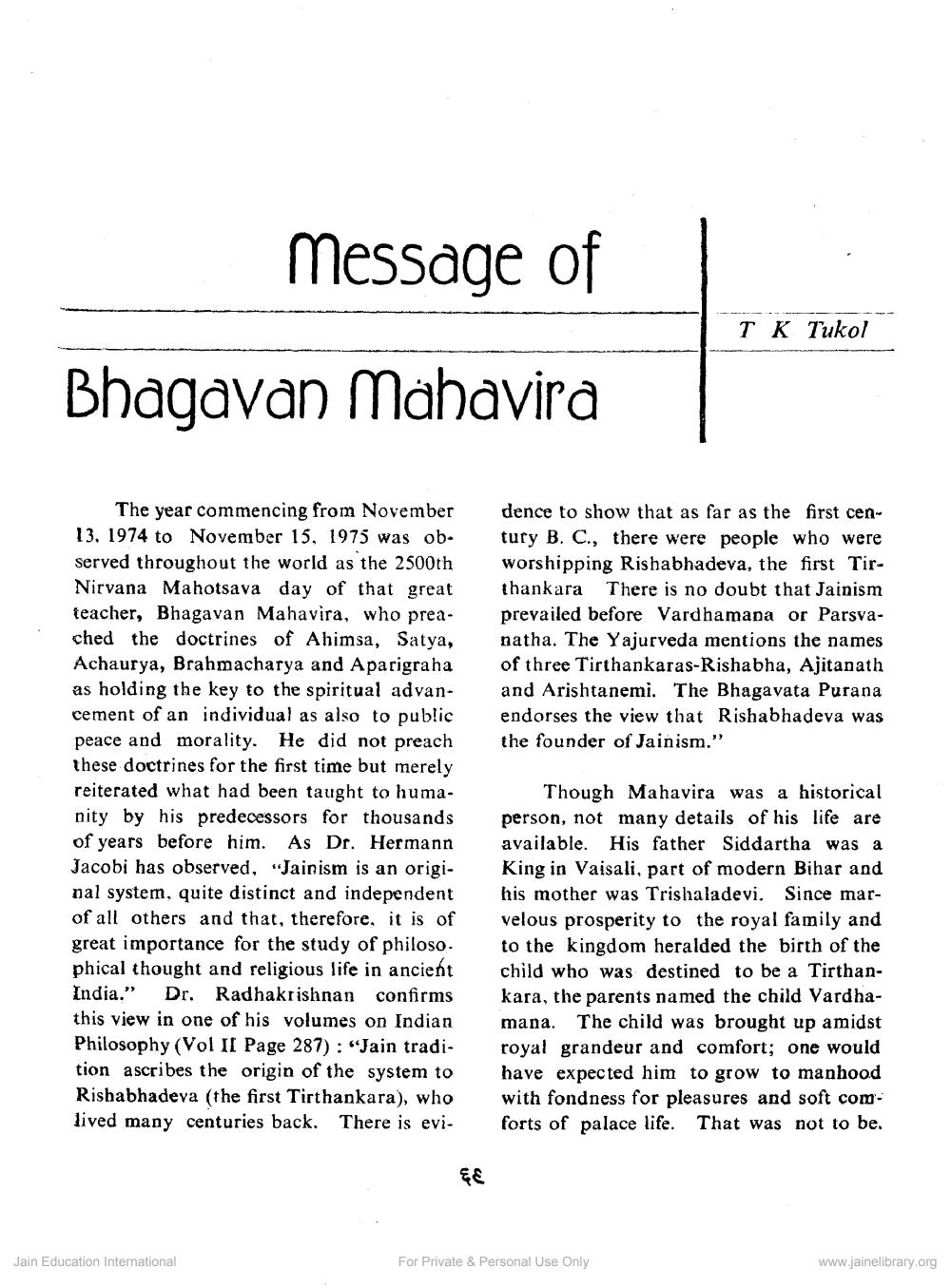Book Title: Message of Mahavir Author(s): T K Tukol Publisher: Z_Tirthankar_Mahavir_Smruti_Granth_012001.pdf View full book textPage 1
________________ Message of Bhagavan Mahavira The year commencing from November 13. 1974 to November 15, 1975 was observed throughout the world as the 2500th Nirvana Mahotsava day of that great teacher, Bhagavan Mahavira, who preached the doctrines of Ahimsa, Satya, Achaurya, Brahmacharya and Aparigraha as holding the key to the spiritual advancement of an individual as also to public peace and morality. He did not preach these doctrines for the first time but merely reiterated what had been taught to humanity by his predecessors for thousands of years before him. As Dr. Hermann Jacobi has observed, "Jainism is an original system, quite distinct and independent of all others and that, therefore, it is of great importance for the study of philoso phical thought and religious life in ancient India." Dr. Radhakrishnan confirms this view in one of his volumes on Indian Philosophy (Vol II Page 287): "Jain tradition ascribes the origin of the system to Rishabhadeva (the first Tirthankara), who lived many centuries back. There is evi Jain Education International ६६ TK Tukol dence to show that as far as the first century B. C., there were people who were worshipping Rishabhadeva, the first Tirthankara There is no doubt that Jainism prevailed before Vardhamana or Parsvanatha. The Yajurveda mentions the names of three Tirthankaras-Rishabha, Ajitanath and Arishtanemi. The Bhagavata Purana endorses the view that Rishabhadeva was the founder of Jainism." Though Mahavira was a historical person, not many details of his life are available. His father Siddartha was a King in Vaisali, part of modern Bihar and his mother was Trishaladevi. Since marvelous prosperity to the royal family and to the kingdom heralded the birth of the child who was destined to be a Tirthankara, the parents named the child Vardhamana. The child was brought up amidst royal grandeur and comfort; one would have expected him to grow to manhood with fondness for pleasures and soft comforts of palace life. That was not to be. For Private & Personal Use Only www.jainelibrary.orgPage Navigation
1 2 3 4 5 6 7
